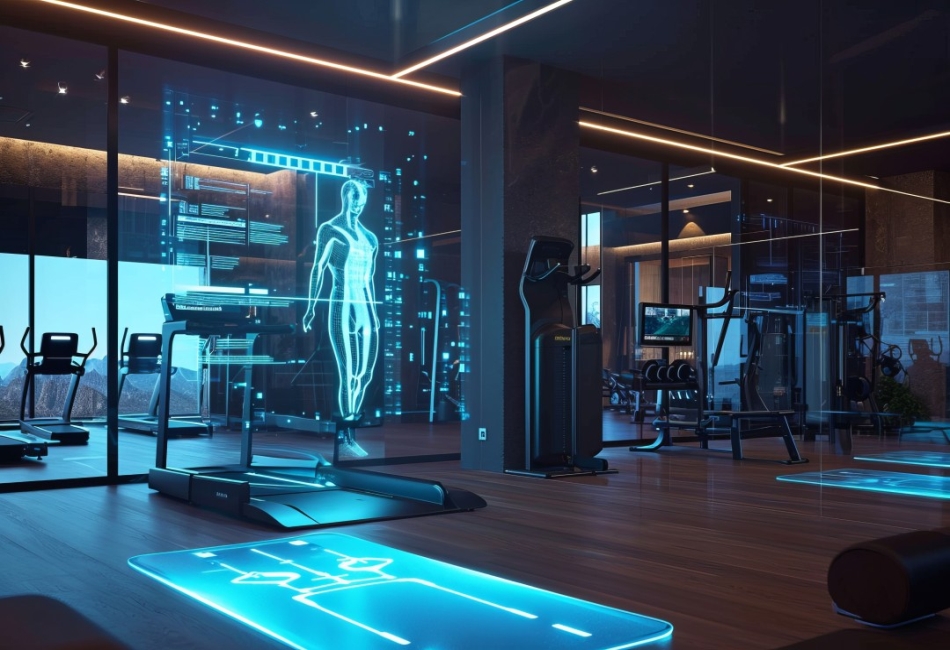In today’s fast-paced world, personalized fitness has become a sought-after experience. Gone are the days of one-size-fits-all workout plans. Thanks to advancements in artificial intelligence (AI), fitness apps can now provide tailored workout programs that adapt to an individual’s unique needs and progress. These apps are revolutionizing how people approach health and fitness, offering customized guidance to help users achieve their goals more efficiently. In this article, we will explore how AI app development is transforming fitness apps into intelligent companions for personalized workouts.
Understanding AI’s Role in Fitness Apps
AI in fitness apps goes beyond simple tracking and basic routines. It uses data to create a personalized fitness experience. The technology analyzes multiple variables, such as a user’s age, weight, fitness level, and health goals, to generate workout suggestions that are realistic and achievable. By utilizing AI, these apps can offer real-time feedback, adjust workout intensity, and track improvements, all while ensuring that the user’s experience is as effective and enjoyable as possible.
Customizing Workouts for Individual Needs
AI-driven fitness apps are adept at tailoring workout plans to fit individual preferences and goals. Whether a user is aiming for weight loss, muscle gain, or improved endurance, AI can adjust the workout intensity, frequency, and type to best suit their fitness level. Additionally, as users progress, the app can modify their routine to ensure they are constantly challenged without being overwhelmed. This constant adaptation makes AI-driven fitness apps far superior to static, pre-set workout plans.
Tracking Progress and Offering Insights
Another significant advantage of AI in fitness apps is the ability to track progress and offer insights based on performance. For example, through sensors in wearables or smartphone tracking, AI can monitor metrics like steps, calories burned, heart rate, and more. As these apps gather data over time, they can make recommendations for improvements or adjustments. For instance, if the app notices that a user is not meeting their daily step goal, it might suggest additional activity or a slight increase in intensity to encourage growth.
Real-Time Feedback for Immediate Adjustments
Fitness apps powered by AI can offer instant feedback during a workout, helping users make immediate adjustments to improve form, technique, and performance. This real-time interaction enhances user engagement and prevents common mistakes, such as improper posture during strength training. The app might alert a user if their form is off or suggest adjustments to optimize results and reduce the risk of injury. With AI’s quick response time, these apps mimic the benefits of having a personal trainer right in your pocket.
Creating a Holistic Fitness Experience
AI in fitness apps is not just about exercises; it can also take a holistic approach by addressing other aspects of wellness, such as nutrition, sleep, and mental health. By tracking food intake or monitoring sleep patterns, AI can offer insights on how these factors influence fitness progress. For example, if a user’s sleep quality is poor, the app might suggest relaxation techniques or adjustments to workout timing to enhance recovery. This 360-degree approach ensures that users maintain a balanced and sustainable lifestyle while pursuing their fitness goals.
Engaging and Motivating Users
Motivation is often a challenge when it comes to fitness. AI-driven apps enhance user engagement by providing personalized reminders, setting achievable milestones, and offering rewards for progress. By analyzing a user’s habits and preferences, AI can encourage consistency by suggesting the right workouts at the optimal times. Whether it’s a reminder to hit the gym or a motivational message after a successful workout, these little nudges help users stay on track and committed to their fitness journey.
The Future of AI in Fitness
The potential for AI in fitness apps is immense. As technology evolves, we can expect even more sophisticated features, such as predictive analytics to forecast a user’s progress or virtual reality (VR) integration for immersive workouts. AI may also expand its reach by analyzing genetic data to predict optimal workout plans for an individual’s unique biology. With such innovations, AI will continue to shape the future of personalized fitness, offering even more precise and dynamic fitness solutions.
A More Personalized Experience
AI-powered fitness apps are at the forefront of the fitness technology revolution, offering personalized, data-driven workouts tailored to each individual. With the ability to adjust routines, track progress, and offer real-time feedback, these apps create a more effective and engaging fitness experience. As AI continues to evolve, so too will the capabilities of these apps, bringing us closer to truly customized workout experiences. Whether you are a fitness enthusiast or a beginner, AI-driven fitness apps can help you achieve your fitness goals in a smarter and more personalized way.
